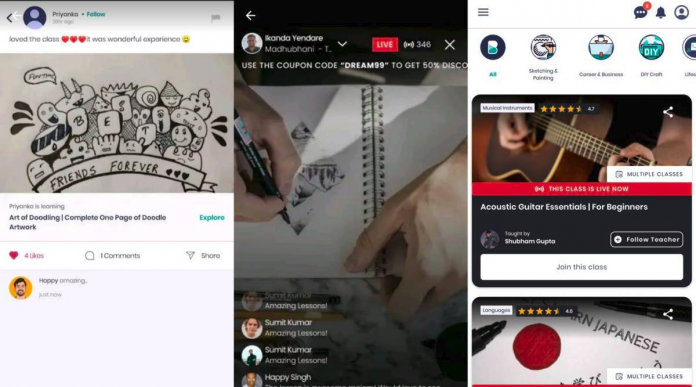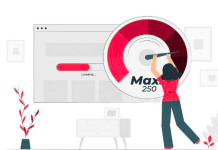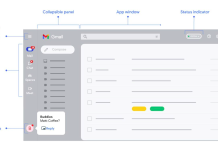When 26-year-old Kumudini Bhutani decided she wanted to teach scrapbook journaling online during the lockdown of 2020, Instagram was her go-to option. Except that it didn’t yield the kind of success she had hoped for.
“I was mainly targeting the audience through ads itself on Instagram. But the ads were not reaching the desired number of people,” she told indianexpress.com.
But luckily for creators such as her, who have a skill to share, new age ed-tech platforms such as Bitclass and Habbit have proved to be a simpler and more reliable way of reaching the target audience. The platforms are geared for teaching courses that are out of the box and focus on new skills such as creative writing, baking, etc. In fact, Bitclass — which is a live online learning platform — is the winner of this year’s Best of Google Play awards for India.
Bhutani is now offering live online courses via Habbit and it has been a good experience so far. Primarily because the marketing is taken care of. “All I have to do is to perform, look at the course structure, and focus on making that experience better for the students. The rest of the things are being handled by the platform, which works for me,” she explained. More importantly, she doesn’t have to worry about finding a location to hold the workshop or worry about where the students are coming from.
There’s no doubt that the global pandemic has caused a shift in how learning is approached. Online learning and live classes have become a lot easier to set up thanks to the ubiquity of Zoom. And these new platforms want to offer courses for skills that users might not find elsewhere.
“We are trying to build the largest online campus for people to learn anything beyond the usual academic stuff. And we think it is a big opportunity,” Gunjan Kejriwal, the co-founder of Bitclass tells indianexpress.com. Unlike traditional ed-tech platforms in India, which are focused on a sales-heavy push for their products, BitClass is going for a try-and-buy kind of approach.
Read more |Is coding a must-have life skill of the future?
On Bitclass, there is a mix of free and paid classes, while their workshops which are shorter are mostly free. “Our workshops are like entry points, so say you spend two days or a day taking up Korean in the free classes and workshops. It basically opens up that door for you and whether you would like to pursue, that is when we ask you to join the full course, which is paid,” Kejriwal explained.
The key is live classes. According to Kejriwal, engagement is much higher and so is time spent when a class is live rather than with pre-recorded content. The product, which is around 10 months old, has to date seen 8 lakh users engage with its classes, while over 1.5 lakh have paid for these.
“We have a bunch of tech solutions built inside the product. We have Zoom and one-way streaming integrated. It also works on a case-to-case basis. Suppose the class is more than 500 students, then we handle it differently, but all of this is integrated and inbuilt inside the Bitclass app. “You (the course teacher) don’t have to go outside Bitclass to take any class, you can do all of that on our app,” he added.
Meanwhile, Habbit also has free workshops as well, which can last a few hours, and then the courses, which have a longer duration are paid for. It also has one-on-one sessions for those who really want to go deep with a skill. The platform, which officially started in February 2021, has till date seen over 25,000 registered users, and has over 50 mentors.
Read more |The future of learning in India is ed-tech
“So initially, we had paid workshops, we realised it is not that affordable for people for this one-time session, so we made it free now. Workshops also let people understand what the live interaction is, how is the mentor, etc,” Somnath Sandeep, co-founder of Habbit, told indianexpress.com
Habbit too has integrated Zoom within the platform for its live classes. Explaining why they have stressed on hiring creators as teachers, Sandeep said the core idea behind their product was “experiential learning.”
“For this reason, we thought that the best people to basically teach learners would be full-time creators. People who are founders of their own first sale of business brands,” he pointed out.
When asked which skills are doing well on Habbit, Raghav Goyal, the other co-founder, said skills such as embroidery and makeup, where there is a tangible outcome to a particular workshop, tend to do well. “Visual arts are also doing well. Vocals courses are doing really well, where a lot of people in India are trying to basically improve their voice and get into the music industry in some form,” he pointed out.
Goyal said the pandemic has just accelerated the boom in the creator economy and there’s a whole momentum for online-first learning and how to make sustainable lifestyles online. “That’s the wave that we’re riding on,” he says.















